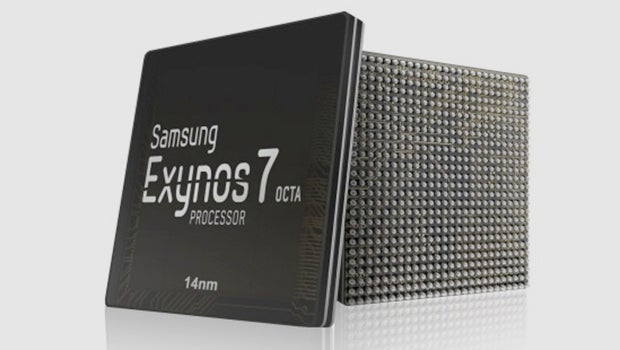Samsung Exynos 7420 performance 20% up on 20nm chips

Samsung has confirmed that the 14nm Exynos 7420 chipset will offer 20 per cent better performance than its 20nm predecessors.
The Exynos 7420 is, of course, the chip widely expected to land in Samsung’s next flagship smartphone, the Galaxy S6.
A new report from the South Korean electronics giant provides details on its new Exynos chip, although no specific model number is mentioned.
Instead, Samsung talked up the fact that it had managed the ‘industry’s first mass production of 14nm mobile AP.’
The new application processor was revealed to use 35 per cent less power than 20nm chips, and improve productivity by 30 per cent.
This is thanks to the fact that it uses a more efficient 14nm FinFET manufacturing process.
Qualcomm’s new Snapdragon 810 chip, by comparison, is built using a 20nm manufacturing process.
Related: Samsung Galaxy Note 5 release date, rumours, news, specs, and price
We recently had a chance to test the Snapdragon 810 chip on a test handset via the AnTuTu benchmark.
What’s interesting is that the benchmark score turned out to be higher for the 810 than the leaked AnTuTu benchmark scores purported to be from the Galaxy S6, which would indicate that Snapdragon chips haven’t quite been usurped by the Exynos series just yet.
The report also confirms that the Exynos 7420 will be an octa-core chip that, when paired with the fact it will run a Mali-T760 GPU, should be a worthy contender for 2015 mobile chip glory.
We’re expecting the Exynos 7420 to land in both the Galaxy S6 and Galaxy S6 Edge, tipped to launch on March 1 at Mobile World Congress in Barcelona.


